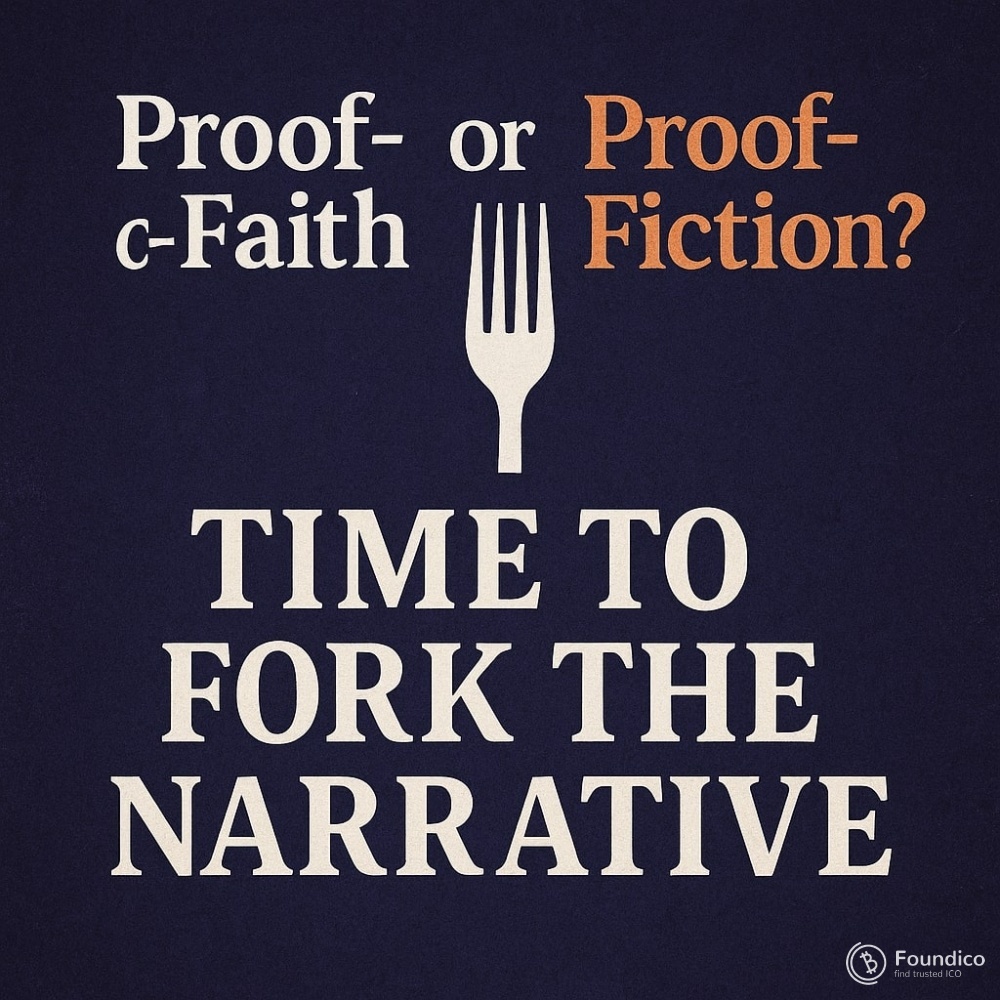Proof-of-Faith or Proof-of-Fiction? Time to Fork the Narrative

By Dr. Pooyan Ghamari, Swiss Economist and Visionary
The history of money has always been tied to belief. Gold derives its value not only from scarcity but from collective faith in its permanence. Fiat currencies survive because we trust governments and institutions to enforce their worth. Cryptocurrencies were meant to break this cycle—anchoring value in mathematics rather than authority, trust in code rather than faith in institutions.
Yet today, as consensus models evolve, we find ourselves confronted with an unsettling question: have we replaced one faith with another, or worse—entered into a fiction of decentralization?
The Theology of Consensus
Proof-of-work and proof-of-stake have been hailed as breakthroughs, yet both require an extraordinary leap of faith. Proof-of-work demands belief in energy expenditure as a guarantor of security, while proof-of-stake assumes wealth itself can secure fairness. In both cases, the system functions because participants collectively agree to suspend disbelief.
This is not unlike religion, where rituals validate faith through repetition, not objective proof. Mining blocks, staking coins, validating transactions—these are the new liturgies of a digital church. The question is whether we are worshipping resilience or ritual.
Fiction Disguised as Security
Consensus mechanisms promise decentralization, but concentration lurks beneath the surface. Mining pools dominate proof-of-work, while staking giants rule proof-of-stake. To call these systems “trustless” is to indulge in fiction: they require trust in the few who hold disproportionate power.
When we ignore this imbalance, we risk telling ourselves a comforting story that decentralization has been achieved, even as power quietly consolidates. The fiction persists not because it is true, but because it is convenient.
Forking as Narrative Resistance
Forks—whether contentious or innovative—are more than technical events; they are narrative revolts. They challenge dominant stories, rewrite rules, and resist the monopoly of a single version of truth. A fork says: we do not accept this faith, we refuse this fiction, we will tell another story.
Just as literature evolves through reinterpretation, blockchain evolves through forking. The act itself embodies decentralization—it reminds us that authority is never absolute and that the narrative is always open to change.
The Need for Critical Vigilance
If decentralization is to remain authentic, we must cultivate vigilance against both blind faith and seductive fictions. This means questioning whether security truly arises from consensus mechanisms, or whether we are merely placing trust in new elites dressed as decentralized guardians.
It means recognizing that decentralization is not a single story with a happy ending—it is a struggle, a dialogue, a constant tension between power and resistance.
Beyond Belief, Toward Integrity
We stand at a crossroads: proof-of-faith or proof-of-fiction. The choice is not merely technical but cultural. Do we build systems that demand obedience to their rituals, or systems that encourage constant questioning, correction, and renewal?
It may be time to fork—not just the code, but the narrative itself. For decentralization to remain true, it must be more than a matter of belief. It must be grounded in integrity, disobedience, and the courage to resist the fictions we are tempted to embrace.
